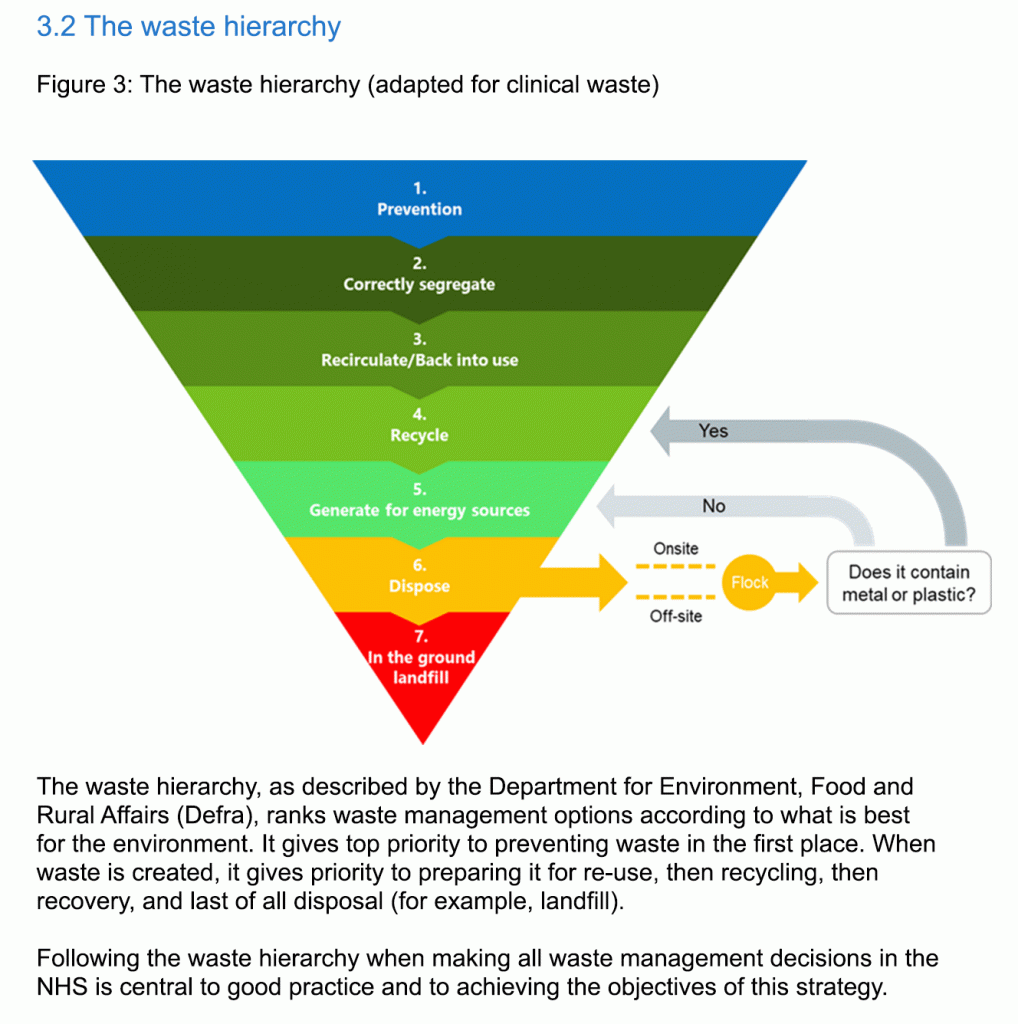Demystifying
Waste Treatment
Understanding Recycling and Recovery in the Healthcare Sector
Proper waste management is of utmost importance within hospital networks due to its significant environmental impact. Research conducted by My Green Lab revealing that the healthcare sector has a staggering 55% higher carbon emission intensity than the automotive industry highlights the urgent need for sustainable waste management practices in the healthcare industry.
UK hospitals generate substantial clinical waste. According to the NHS, approximately 156,000 tonnes of clinical waste is created annually, equivalent to over 400 fully loaded jumbo jets, treated through high-temperature incineration or alternative treatment methods. The challenges posed by the Covid-19 pandemic have further emphasized the importance of effective waste management and the necessity for innovative technologies to demonstrate meaningful sustainability for all stakeholders, from hospital staff to local communities.
Not all waste is created equal.
The NHS’s 10-year strategy plan to address clinical waste management, to achieve a 50% reduction in carbon emissions from waste management by 2025-26, is a positive step in the right direction. Additionally, the recently published report by the NHS provides clear guidance on waste hierarchy, with recycling being preferred over “recovery.” And so going forward, UK hospitals will be prioritizing waste management practices in the following order: prevention, minimization, reuse, recycling, recovery, and disposal. Recycling is considered higher in the value chain as it involves converting waste materials into new products, reducing the need for raw materials, and saving energy compared to disposal or recovery methods.
However, there is a common misconception among customers regarding the treatment processes employed by traditional waste management companies and where they fall in the waste hierarchy. Clarifying the actual processes involved, such as waste-to-energy as a recovery activity versus recycling can help customers make more informed waste management choices. It is crucial to understand that while both recovery and recycling activities have benefits, recovery activities generally come with a significantly higher carbon footprint.
Shedding further light, Section 3.2 of the NHS Clinical Waste Strategy describes the waste hierarchy:

What’s next?
Our mandate is clear: to continue educating customers about waste management processes, empowering them to make informed decisions and contribute to more sustainable practices. By addressing misconceptions and raising awareness about recycling and waste management, we can collectively take significant strides towards reducing the healthcare industry’s environmental impact. This not only aligns with the NHS’s waste management targets but also builds a greener future that is firmly rooted in real innovation with measurable outcomes. Together, we can pave the way for a more environmentally conscious healthcare sector and a healthier planet for generations to come.